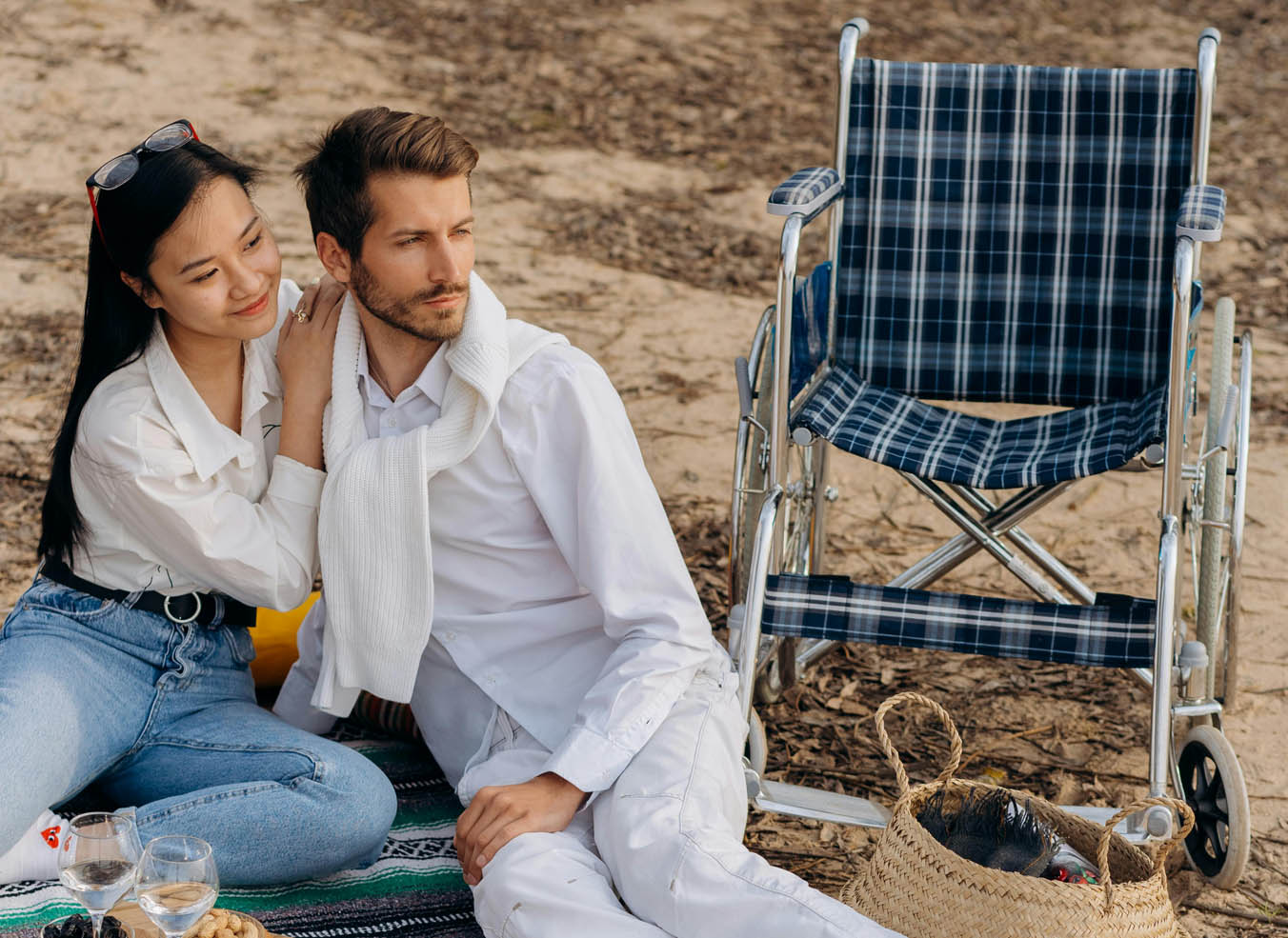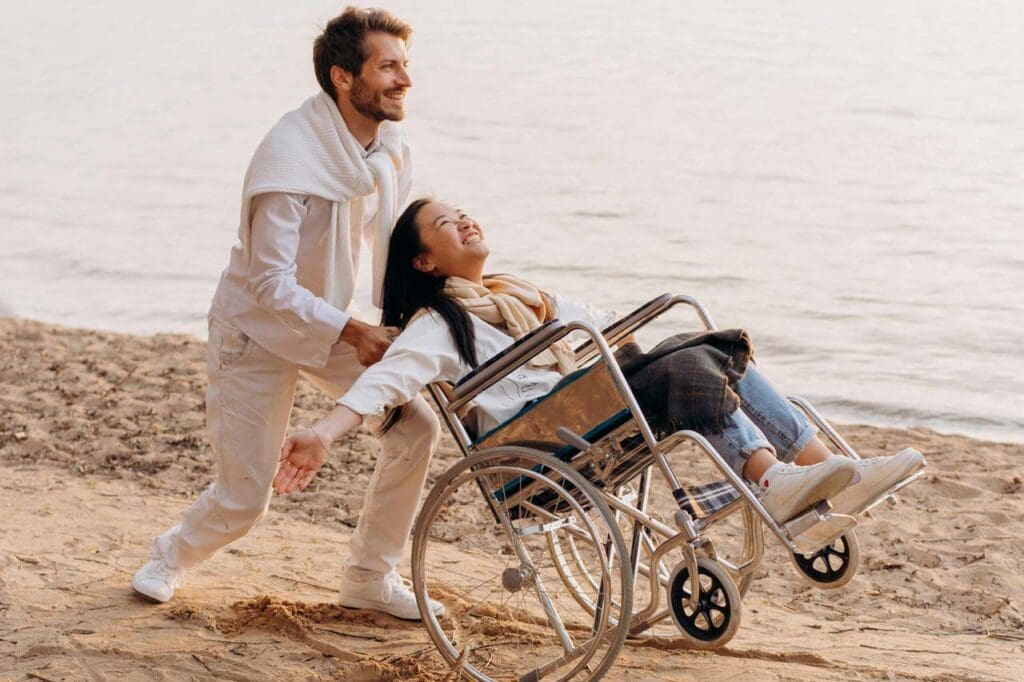Now Reading: Navigating Relationships and Dating with a Disability
-
01
Navigating Relationships and Dating with a Disability
Navigating Relationships and Dating with a Disability

Navigating relationships and dating can be both exciting and nerve-wracking for anyone. Add a disability into the mix, and you might feel like you’re rolling into uncharted territory. But let’s get one thing straight: having a disability doesn’t make you less deserving of love, connection, or a fulfilling relationship. It just means you’ve got a few unique experiences that shape the way you approach the world—and that’s a good thing.
Here are some practical tips, personal insights, and helpful hacks for navigating the dating scene and building meaningful relationships as a disabled person.
Confidence is Key (and It Starts with You!)
Before you dive into the world of dating or relationships, it’s essential to take stock of how you view yourself. Confidence is incredibly attractive, but it’s something you have to cultivate from within. Think about the traits that make you you: your sense of humor, kindness, resilience, or creativity. Your disability is part of your story, but it’s not the whole story.
- Personal Example: When I first started dating, I worried my wheelchair would overshadow everything else about me. But I soon realized that by embracing it and being upfront, I felt more authentic—and that authenticity made all the difference.
Be Upfront (But on Your Terms)
Deciding when and how to share details about your disability is personal. Some people prefer to address it right away, while others wait until they’ve built a connection. There’s no one-size-fits-all answer, so do what feels right for you.
- Online Dating Tip: If you’re using dating apps like Bumble or Hinge, consider including a lighthearted mention in your bio. For example, “Champion of wheelchair parallel parking” or “Rolling into your DMs (literally).” It’s a great icebreaker and sets the tone for open communication.
Communication is Everything
Relationships thrive on honest, open communication. Whether you’re explaining your accessibility needs or expressing how you’re feeling, being clear and upfront helps set the stage for a healthy connection.
- Example: On a first date to a local coffee shop, I let my date know beforehand about the accessible entrance. They appreciated the heads-up and even scoped it out ahead of time. That little act of thoughtfulness meant a lot.
Setting Boundaries
Boundaries are crucial in any relationship, but they’re especially important when navigating a disability. Be clear about what you’re comfortable with, and don’t be afraid to advocate for your needs.
- Scenario: If your partner suggests an activity that isn’t accessible, explain why it might not work and offer alternatives. For instance, “I’d love to go hiking, but how about we check out this wheelchair-accessible nature trail instead?”
Don’t Let Stereotypes Hold You Back
Unfortunately, misconceptions about disability still exist. Some people may assume you’re not interested in dating or that your disability defines your entire life. It’s frustrating, but it’s not your job to educate everyone. Focus on the people who see you for who you truly are.
- Pro Tip: Surround yourself with a supportive circle of friends and family who uplift you and remind you of your worth.
Fun, Accessible Date Ideas
Get creative with your date plans! Accessibility doesn’t have to mean boring. Here are a few ideas:
- Movies and Dinner: Opt for theaters with accessible seating and pick a restaurant with plenty of space to maneuver.
- Outdoor Adventures: Visit a wheelchair-friendly park like the High Line in New York City or explore a botanical garden.
- Stay-At-Home Fun: Cook a meal together, have a game night, or stream a movie marathon.
- Local Attractions: Many museums, zoos, and aquariums are wheelchair-friendly and make for fun, relaxed outings.
Building Deeper Connections
Once you’re in a relationship, it’s about more than just fun dates. Building a meaningful connection takes time, patience, and effort from both sides. Be open about your goals, dreams, and challenges, and encourage your partner to do the same.
- Shared Growth: Maybe you’re learning to navigate new aspects of your disability, or your partner is adjusting to their role as a support system. Celebrate milestones together, no matter how small.
When Things Don’t Work Out
Not every relationship will go the distance, and that’s okay. Breakups are tough, but they’re also opportunities to learn and grow. Remember that rejection isn’t a reflection of your worth—it’s just part of the process.
- Self-Care Tip: After a breakup, lean into activities that bring you joy, whether it’s spending time with friends, diving into a hobby, or treating yourself to a spa day.
Finding Support and Community
You’re not alone on this journey. Connecting with others who share similar experiences can be empowering and inspiring. Look for online forums, social media groups, or local meet-ups for disabled individuals navigating relationships.
- Example: Groups like “Disabled and Thriving” on Facebook or dating platforms specifically for disabled individuals can be great resources for advice and support.
At the end of the day, relationships and dating are about connection, trust, and fun. Your disability is just one part of what makes you unique, and anyone worth your time will see that. So go ahead—put yourself out there, embrace the adventure, and remember: you’re worthy of love, exactly as you are.

